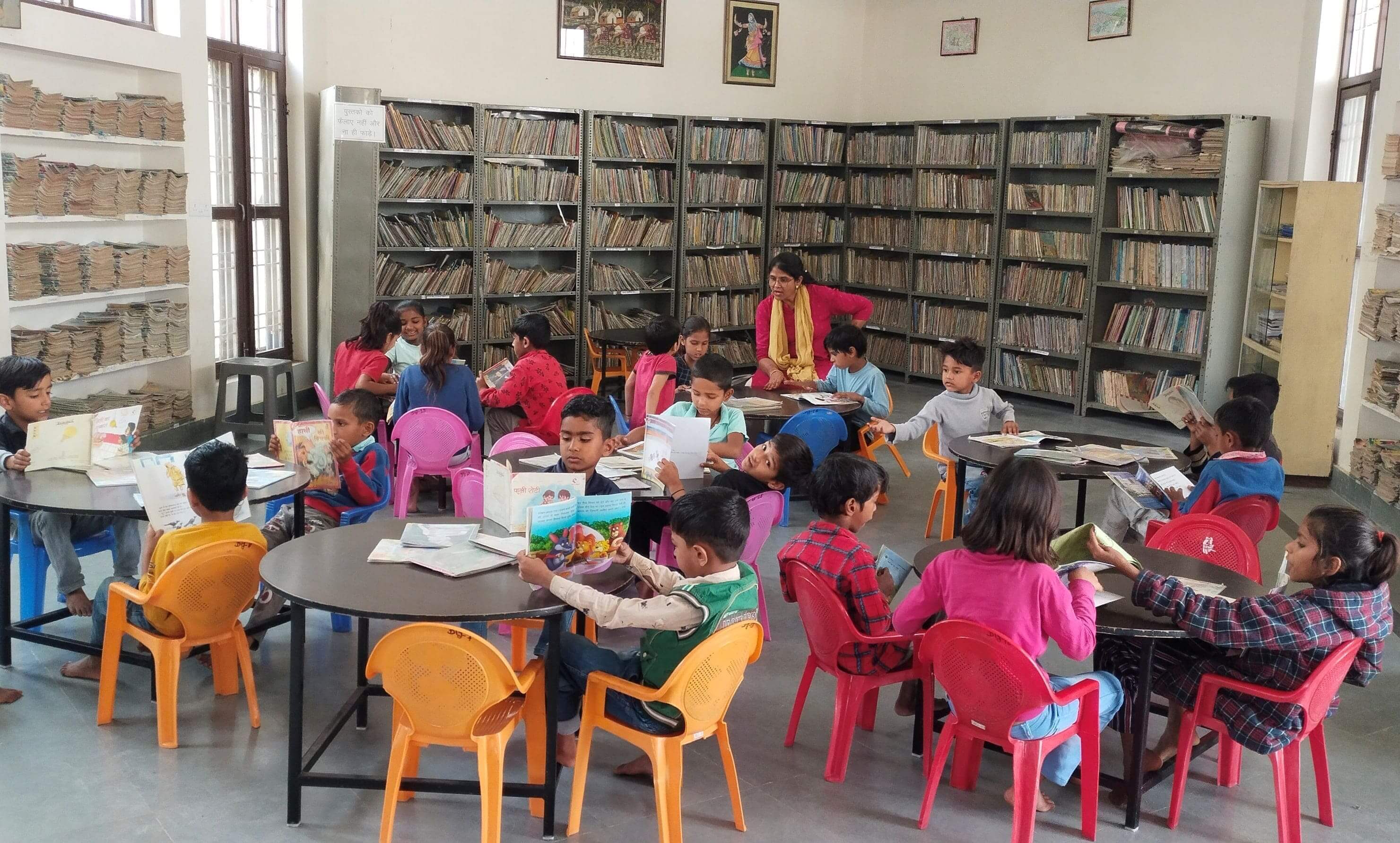
Philosophy and Pedagogy
“Rationality is an essential aspect of human dignity and the rational goal of humanity is to construct a society in which such dignity shall flower, … an international and democratic republic. The job of education is to develop character in the broadest sense, that is, principled thought and action, in which the dignity of man is manifest.” (Israel Scheffler)
In describing the general aims and direction of Digantar Vidyalayas we can do nothing better than quote at length from the Report of Secondary Education Commission (1953): “Citizenship in a democracy is a very exacting and challenging responsibility for which every citizen has to be carefully trained. It involves many intellectual, social, and moral qualities which cannot be expected to grow of their own accord. In any kind of regimental social order, the individual does not need to indulge in the travail of independent thinking or of chalking out his own lines of action. The authorities relieve him of that onerous responsibility! But in a democracy—if it is anything more than the thoughtless exercise of the vote—an individual must form his own independent judgment on all kinds of complicated social, economic, and political issues and, to a large extent, decide his own course of action. … The first requisite in this connection is to develop the capacity for clear thinking and receptivity to new ideas. On the intellectual side, the school should perhaps accord the highest priority to the cultivation of this quality, which is the distinguishing mark of an educated mind. A democracy of people who can think only confusedly can neither make progress nor even maintain itself, because it will always be open to the risk of being misled and exploited by demagogues who have within their reach today unprecedentedly powerful media of mass communication and propaganda. To be effective, a democratic citizen should have the understanding and the intellectual integrity to sift truth from falsehood, facts from propaganda and to reject the dangerous appeal of fanaticism and prejudice. … He should also have an open mind receptive to new ideas and not be confined within the prison walls of outmoded customs, traditions, and beliefs. It should neither reject the old because it is old nor accept the new because it is new, but dispassionately examine both and courageously reject whatever arrests the forces of justice and progress.” That is precisely what Digantar Vidyalaya in engaged in doing for last four decades.
Some key pedagogical principles
Guided by the above-mentioned philosophical considerations and in the light of theories of child development and learning, the schools are organized according to some key principles:

- Independence of judgment and action can develop only in an environment free from fear and punishment and marked by dialogue and reflection. Thus, the schools have no punishment, are given the maximum possible freedom, and are guided through affectionate encouragement and sensitive dialogue.
- Rational judgment and action cannot be based on mugged-up or indoctrinated or conditioned rules. It demands clarity of understanding. Therefore, the emphasis is on learning with understanding appropriate at the level of intellectual development of the child.
- Conceptual learning or learning with understanding cannot be forced. Children make sense of the world in their own styles connecting with their already acquired conceptual structures at their own pace. Therefore, freedom of pace of learning for every child is accepted as a fundamental principle of pedagogy.
- Unconditional acceptance of what the teacher or textbook says is against the idea of independent and considered judgment. Therefore, children are encouraged—in a manner appropriate to their developmental stage—to examine and question what is presented to them for learning.
- The human knowledge and understanding are social in their very nature. Cooperation and sharing in learning bring about clarity and epistemic responsibility. It also makes one sensitive to others’ ways of thinking, thus developing respect for others. Therefore, cooperative learning in small groups is encouraged.
- Freedom of judgment and action can easily degenerate into unconcern for others and irresponsible behaviour. Therefore, taking responsibility for maintaining working order in the classroom and helping others in learning is encouraged.
Functional and Structural Implications of the above-mentioned principles
The very structure of the classroom and school functioning changes if one seriously wants to act according to the abovementioned principles:
- The school functions as a teacher collective where, though there are two coordinators, the decisions are made collectively and the responsibility for proper implementation of decisions is shared by all teachers.
- The school has no “grades” in the usual sense. Classes are composed of children at different levels of learning and at different ages. The teacher is more of a facilitator setting up appropriate tasks. Actual learning is done by the children in small groups or individually.
- In such a classroom the teacher cannot teach one topic to the whole class together, thus at the primary level individually appropriate tasks are set and appropriate guidance is given in small groups or invidually.
- The very structure of the school and classrooms goes against the fixed-level terminal examination. Thus, Digantar school practice Continuous and Comprehensive Evaluation (CCE) right since 1978, and very successfully too.
- The children appear for certification examinations held by the government schools and Secondary Education Board of Rajasthan at the level of standards 5, 8, and 10.

